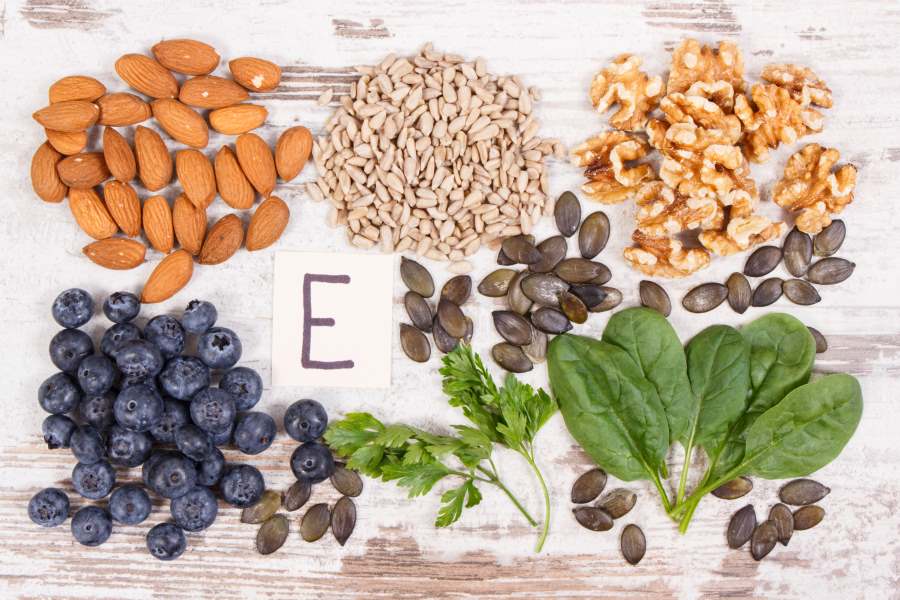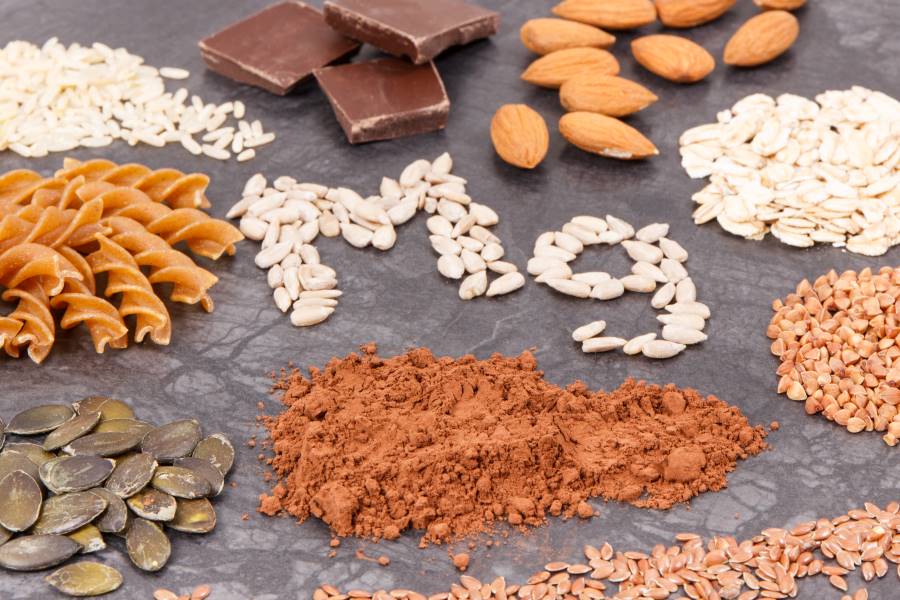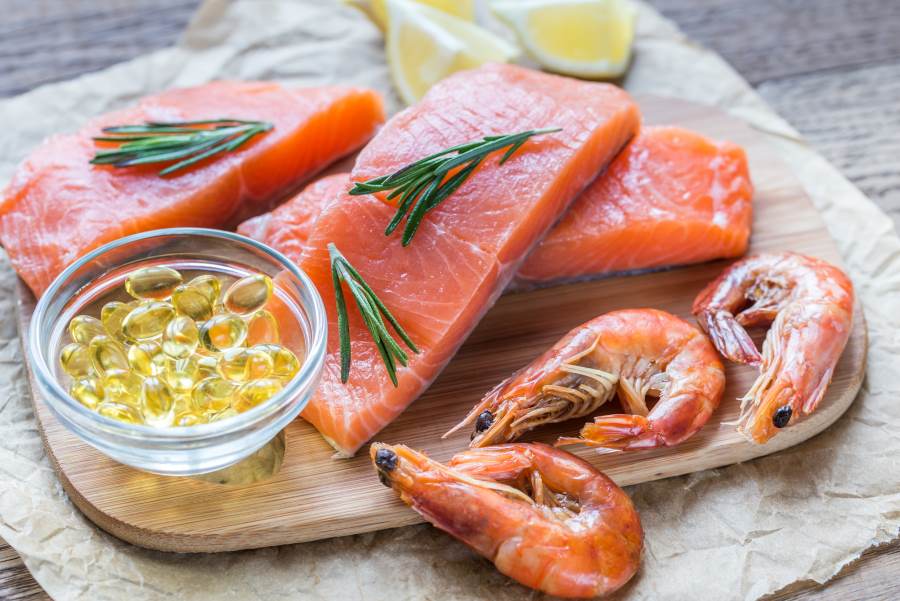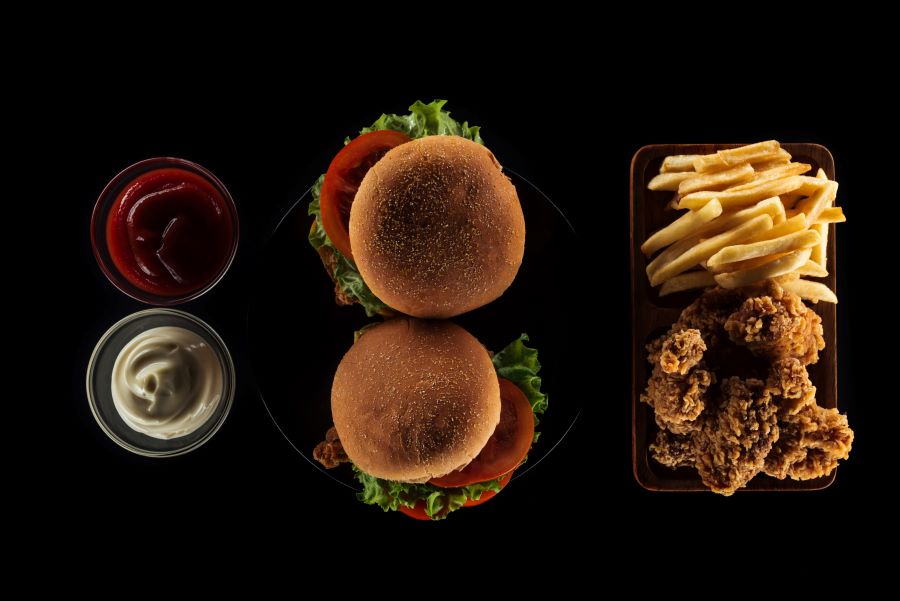What Foods to Eat and Avoid During Asthma?

There is no scientific evidence that a specific diet may help treat asthma. But, doctors recommend a balanced diet with a healthy routine to control its symptoms. An asthma-friendly diet can help manage symptoms. A diet rich in antioxidants, vitamins, and healthy fats can strengthen the immune system, reducing the frequency of asthma attacks.
This blog focuses on the best foods for asthmatic patients. It also details the food items patients should avoid and important lifestyle factors that help manage this chronic disease.

Table of Contents

What is Asthma?
Asthma is considered a chronic inflammatory disorder of the airways. It involves air pathways in the lungs becoming swollen and constricted, resulting in trouble breathing, whistling sounds, and coughing. People with asthma may experience triggers such as pollen or dust, cold weather, exercise, and anxiety.
Patients vary in how severe their disease is, ranging from mild symptoms to life-threatening attacks. There is no cure; however, asthma is treatable with medication and certain alterations in daily habits. Effective management improves overall wellness in the patient.
What is the Connection Between Asthma and Diet?
Food plays an essential role in maintaining our health. In fact, medical researchers have observed that dietary choices are connected with cases of asthma. Often allergens and sulphites are present in food items that people consume regularly. For instance, wine, beer, dried fruits and vegetables, and pickled foods contain sulphites. Please note that consuming foods with too much sulfites can trigger asthma.
It has been observed that obesity might also cause asthma and worsen symptoms of those suffering from it. Consuming fresh vegetables and fruits and exercising regularly go a long way in maintaining our health.
The right food items preserve and improve our health, including the lungs. Dietary changes, along with medications and exercising, can result in significant improvement in the health of those suffering from asthma.
Best Foods for Asthma Patients

Including specific foods in an asthma diet can help reduce inflammation and support better lung function. Here is a list of foods for asthmatic patients that can help them experience some relief:
1. Fresh Fruits and Vegetables

Incorporating lots of fresh fruits and vegetables into your diet is a good idea if you are an asthma patient. The nutrients present in vegetables and fruits improve the condition of your lungs. Additionally, consuming fruits and vegetables improves symptoms like wheezing, according to some studies.
Apples improve lung function and reduce the risk of asthma. Additionally, bananas contain antioxidants and potassium, which help in decreasing wheezing.
2. Vitamin A-Rich Food Items

Asthma patients should add vitamin A-rich food items to their diet. Carrots, broccoli, lettuce, spinach, cantaloupe, sweet potatoes etc., are great foods for asthmatic patients.
Vitamin A-rich foods help patients fight oxidative stress due to their anti-oxidative properties. Furthermore, studies have shown that these food items improve lung function and reduce asthma attacks.
3. Vitamin D-Rich Food Items

Increasing the intake of vitamin D will have positive effects on asthma patients. According to a medical study, vitamin D deficiency influences inflammatory responses in the airways. Therefore, consumption of vitamin D-rich food items reduces the severity of asthma and improves lung condition.
People need to consume food that are rich sources of vitamin D like salmon, mushrooms, mackerel, cheese, yoghurt and milk. One can also consume fortified milk, fortified orange juice and eggs. However, patients who are allergic to dairy products or eggs should stay away from these food items.
4. Vitamin E-Rich Food Items

People who have asthma can consider adding food items containing vitamin E to their diet. Food sources for vitamin E include avocado, almonds, fish, olive oil, shellfish, spinach, tofu, sunflower seeds, broccoli etc.
Vitamin E contains a substance called tocopherol. It is a powerful antioxidant capable of decreasing wheezing and coughing.
5. Food Items Rich in Antioxidants

Asthma patients benefit from consuming food items rich in antioxidants. According to a study, symptomatic asthma is associated with the low consumption of antioxidant nutrients. Intake of foods rich in antioxidants protects the cells against damage. This reduces inflammation and supports the improvement and functioning of healthy lungs.
Antioxidant-rich food items include red cabbage, beets, spinach, artichokes, strawberries, blueberries, goji berries, raspberries, pecans and dark chocolate
6. Food Items Rich in Magnesium

Medical researchers have stated that magnesium-rich food items can help patients experience relief if they are suffering from asthma. This is because magnesium plays a dual role in being an anti-inflammatory and relaxing the bronchial muscles. This enables the air to leave the lungs easily.
Some food items rich in magnesium are dark chocolate, bananas, avocados, nuts, seeds, whole grains, salmon and whole grains.
7. Whole Grains

Regular consumption of whole grain food items can reduce the symptoms of asthma. A diet rich in whole grains can improve lung function and reduce asthma symptoms. These food items are rich in fibre, minerals and vitamins.
So, people who have asthma can consider including foods prepared from whole oats, bulgur wheat, brown rice, barley and buckwheat in their diet. Whole wheat bread, pasta and crackers are some of the best foods for asthmatic patients.
8. Omega 3 Foods

Fatty fish like salmon, mackerel, and sardines are rich in omega-3 fatty acids. These healthy fats have anti-inflammatory properties that help reduce airway inflammation and support overall lung health.
Consuming fatty fish regularly can improve respiratory function and lower the frequency of asthma attacks. These compounds help combat oxidative stress and inflammation in the airways, potentially reducing the severity and frequency of asthma symptoms.
How to Reduce Frequent Cough?
Asthma-related coughing can be triggered by inflammation and excess mucus production. Certain foods can help manage these symptoms by reducing inflammation and soothing the airways. Here are some foods that may help:
Foods to Avoid for Asthma Patients

Now that we have looked at the food items that are helpful for asthma patients, let us turn our eyes to the food to avoid for asthma patients:
1. Sulfites

These are chemicals that manufacturers add to food items to increase their shelf life, appearance and taste. For example, pickled food items, dried fruits and sauerkraut are high in sulfites. Additionally, regular consumption of alcohol, wine and grape juice can worsen asthmatic conditions. This is because these food items are rich in sulfites.
2. Salicylates

These are naturally-occurring compounds present in coffees, teas, spicy foods and dishes flavoured with herbs. It has been observed that asthma patients are often allergic to salicylates. It leads to flaring up of symptoms.
3. Fast Food

Fast food items contain a high amount of additives, saturated fats and sodium. People who show symptoms of asthma should limit the consumption of fast foods. Otherwise, it might worsen their health conditions.
A 2015 study found that children who consume fast food regularly are much more likely to have asthma.
4. Foods that Cause Gas

There are certain food items like carbonated drinks, garlic, onion, fried foods, beans and cabbage that cause gas. This leads to asthma attacks and chest tightness, which can further make breathing difficult. Bloating can put pressure on the diaphragm and trigger asthma symptoms.
5. Artificial Ingredients

These include chemical preservatives, colourings and flavourings. These are generally found in processed and fast food items. These are harmful to asthma patients. In fact, asthmatic patients may be allergic or sensitive to such artificial ingredients.
Factors to Consider While Choosing Diet for Asthma Patients
It's important to select a diet that aligns with your lifestyle, supports your overall well-being, and is sustainable in the long term. Here are a few following factors involved:
1. Health Problems
Asthma patients may not always suffer solely from asthma. They can also have other underlying issues. Therefore, visiting a doctor and getting yourself checked thoroughly is essential. This will help you understand the extent of your condition.
2. Consult a Professional
Consulting a dietician or nutritionist is always the best way to get a prescribed diet for asthma patients. They are professionals with more knowledge regarding illnesses and how to treat them. They will create a perfect diet chart for you that will be personalized based on your condition, allergies, food preferences, and lifestyle.
3. Your Eating Preferences
You should never force yourself to eat a particular food if you do not like it. It might be healthy for you and even reduce your asthma, but it will deter you from following a diet. As a result, your asthma may again aggravate.
4. Set a Budget
There are many good foods for asthma patients, but they are only sometimes affordable. This is why patients should set a budget so they do not end up overspending on food. Spending more than required on food is unnecessary and adds to stress.
Stay on Track with These Health Tools
What are the Causes of Asthma?
Asthma is a chronic respiratory condition caused by various factors that lead to airway inflammation and breathing difficulties. These causes include environmental triggers like pollen, dust mites, pet dander, and air pollution. Genetic factors also play a role, as asthma often runs in families.
Respiratory infections, particularly in childhood, can increase the risk. Allergies to certain foods or medications can trigger asthma symptoms as well. Smoking, both direct and secondhand exposure, is another common cause. Physical activity or exercise-induced asthma can also be a factor, especially in cold air.
How to Treat Asthma?
Asthma treatment focuses on controlling symptoms, preventing attacks, and improving quality of life. It involves a combination of medication, lifestyle changes, and avoiding triggers that worsen the condition. Below are key treatment strategies:
1. Inhalers (Bronchodilators and Steroids)
Inhalers are the primary asthma treatment, helping open airways and reduce inflammation. Bronchodilators offer quick relief during an asthma attack, while steroid inhalers control long-term symptoms.
2. Avoiding Triggers
It is crucial to identify and avoid asthma triggers, such as allergens (pollen, dust mites), smoke, or pollution. Reducing exposure to these irritants can significantly decrease the frequency and severity of asthma symptoms.
3. Medications (Long-term Control)
Oral medications like leukotriene modifiers or theophylline help manage asthma over time. These medications reduce inflammation or relax airway muscles, providing long-term control for people with persistent symptoms.
4. Lifestyle Changes
Incorporating a healthy diet, regular exercise (under medical supervision), and stress management techniques can help improve lung function and overall asthma control. Avoiding smoking or secondhand smoke is also critical.
5. Emergency Action Plan
An emergency asthma action plan helps patients manage severe asthma attacks. This plan should include steps to take when symptoms worsen, when to use rescue medication, and when to seek medical help.
How to Prevent Worsening of Asthma Symptoms?
Patients who have asthma need to identify and stay away from triggers that may worsen their condition. Listed below are a few things that people need to do to prevent the worsening of their health condition:
- Stay away from smoke, including cigarette smoke, burning wood, and campfires.
- Avoid adverse weather conditions like stormy, humid, cold, or windy weather.
- Reduce exposure to air pollution, vehicle exhaust fumes, chemical fumes, and smog.
- Minimizing exposure to dust mites or spores is also a good idea.
- Avoid common food allergens like shellfish and peanuts.
- Finally, avoid over-the-counter (OTC) medications like non-steroidal anti-inflammatory drugs and aspirin.
What are the Key Points to Remember?
Maintaining a healthy diet is essential to keep your asthma in control, but you should also keep the following points in mind:
- Identify what is triggering your asthma. It can be anything, starting from sinusitis to smoke to air pollution.
- Avoid smoking or even standing near a person who is smoking.
- Prevent yourself from catching a cold often.
- Get vacations and immunotherapy shots after consulting your doctor.
- Regular check-ups with a healthcare provider are crucial to monitor asthma progression and adjust treatment.
- When done under medical supervision, exercise can improve lung capacity and help manage asthma effectively.
- Recognizing early signs of an asthma attack, such as coughing or shortness of breath, can prevent worsening.
- Stress management and relaxation techniques, such as yoga or meditation, can help reduce asthma symptoms.
- Proper use of asthma medications, including understanding when to use rescue inhalers, ensures effective treatment.
A balanced diet and good lifestyle practices can help anyone improve their health. In addition, dietary choices can allow people to experience relief from the symptoms of asthma, a chronic health disease. This blog has listed foods for asthmatic patients and guides the reader on what to avoid. Certain foods can play a key role in managing symptoms and reducing inflammation to improve asthma patients' health and well-being.
Protect What Matters - Explore Other Insurance Options














